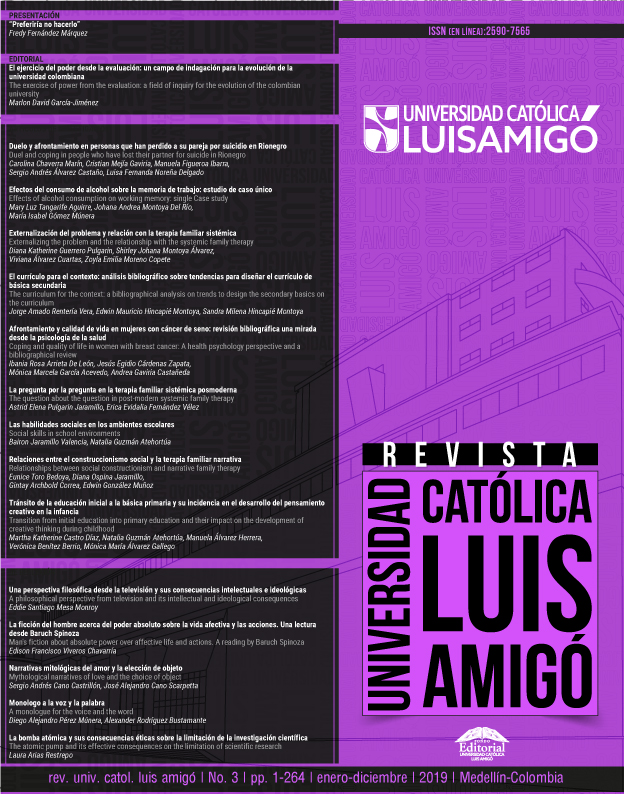Man’s fiction about absolute power over affective life and actions. A reading by Baruch Spinoza
DOI:
https://doi.org/10.21501/25907565.3267Keywords:
Affective life, Servitude, Rationality, Liberty.Abstract
In this article the argument is that for Spinoza human beings cannot have absolute control over their affective life and neither over the actions that derive from it. But they can appeal to reason to nuance the emergence of affective power in human consciousness. The arrival to freedom is generated only by reasoning when it reflects on affective life. According to Spinoza reason and affection are linked to each other and therefore complement each other. Sometimes the reason manages to maintain the affection settled by explaining its causes, but the affective life is stronger when it submits to reason.Downloads
References
Borges, J. L. (1979). Baruch Spinoza. En: Obra poética 1923-1976. Madrid, España: Emecé.
Deleuze, G. (2006). Vida de Spinoza. En: Spinoza: Filosofía práctica. Buenos Aires, Argentina: Tusquest.
Spinoza, B. (2009). Ética demostrada según el orden geométrico. Madrid, España: Trotta.
Spinoza, B. (1988). Correspondencia. Madrid, España: Alianza
Spinoza, B. (1986). Tratado político. Madrid, España: Alianza.
Downloads
Published
How to Cite
Issue
Section
License
PROPIEDAD INTELECTUAL
Los autores son moral y legalmente responsables del contenido de sus artículos, así como del respeto a los derechos de autor. Por lo tanto, éstos no comprometen en ningún sentido a la Universidad Católica Luis Amigó.
La reproducción de los artículos se regirá conforme a lo descrito en http://creativecommons.org/licenses/by-nc-sa/4.0/

